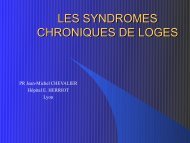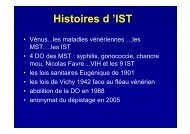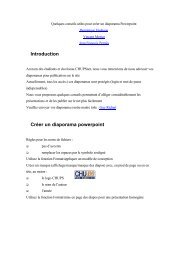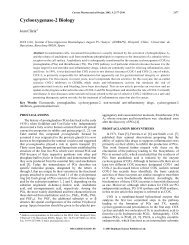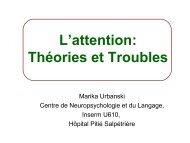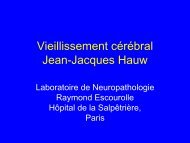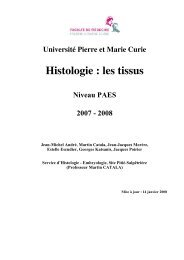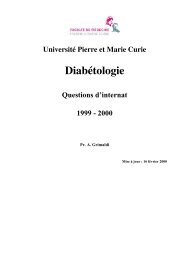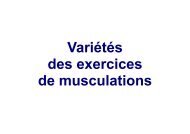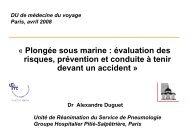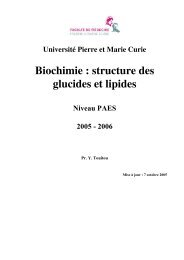Angor - Faculté de médecine Pierre et Marie Curie
Angor - Faculté de médecine Pierre et Marie Curie
Angor - Faculté de médecine Pierre et Marie Curie
Create successful ePaper yourself
Turn your PDF publications into a flip-book with our unique Google optimized e-Paper software.
Reconnaître l'angor instable<br />
• <strong>Angor</strong> instable: Diagnostic d'interrogatoire +++<br />
(l' ECG peut être normal, enzymes le plus souvent normaux)<br />
Douleurs angineuses ET<br />
– Évolutivité <strong>de</strong> l'angor (accéléré, <strong>de</strong> novo)<br />
– Crise <strong>de</strong> repos +++<br />
• Signes ECG: localisés (ne pas passer à côté)<br />
– T négatif ou sous décalage dans 1 territoire<br />
– ECG peut être normal hors crise angineuse<br />
– Refaire ECG à 1/2h, 1h<br />
• Enzymes : élévation inconstante (1/2) <strong>et</strong> r<strong>et</strong>ardée<br />
– 50% <strong>de</strong>s angors instables avec TNI négative<br />
– Élévation r<strong>et</strong>ardée <strong>de</strong> qq h / début <strong>de</strong> la douleur ou crise précé<strong>de</strong>nte<br />
– Elévation <strong>de</strong> CPK: IDM<br />
– (TNI: valeur pronostique +++, stratification du risque)<br />
• Suj<strong>et</strong> âgé: formes "asymptomatiques" compliquant un Pb infectieux, anémie…:<br />
modifications ECG <strong>et</strong> élévation franche <strong>de</strong> TNI



